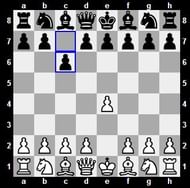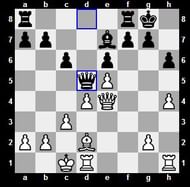The much-touted battle of wits between Vishwanathan Anand and Magnus Carlsen produced much excitement, but neither player has managed to come out on top yet. Like Game 1, Game 2 too was a 25-move draw and neither one of the players looked dominant. However, with 10 more games left, there is still plenty of action and excitement to look forward to for all the chess enthusiasts out there.
Let’s take a look at the five talking points of Game 2.
1) An unsurprising opening
Vishwanathan Anand started the game with white, and to no one’s surprise, started the game with a typical e4 opening. This has been a feature of Anand’s game for a while now as he prefers to load the center of the board and likes to control the game from that region.
Carlsen, too, did not try anything out of the textbook as he played c6 in an attempt to cramp the board for Anand and not give him freedom to advance.
2) A blitz start
As opposed to Game 1, both players had a clear idea of the strategy that they were going to use and did not take any time in setting up the opening. The first ten moves were played in under 10 minutes with an exchange of a pawn and bishop as both players looked for a positional advantage.
Anand’s vast experience in blitz chess was definitely on display here as he tried to pressure Carlsen for time, but the Norwegian was more than equal to the challenge and did not give Anand any opening to exploit.
3) An exchange of queens
Anand is not particularly known to be overly aggressive in non-blitz matches and likes to take advantage of his opponents’ positional errors. So it was surprising to see him accept Carlsen’s queen exchange in the 18th move of the game.
There could have been two reasons that Anand made this move: 1) To play for a draw 2) To surprise Carlsen by moving out of his comfort zone. In either case, the exchange ultimately led to a comparatively dull end game as both players were more than happy to split the point.
4) Saving the best for the last?
It is no secret that both Anand and Carlsen have been preparing for this tournament for many months now, and it has been a little surprising to see them being content with draws in both the opening games.
The end game seemed to be more of a time-wasting exercise by both players as neither one of them really wanted to go in for the kill as the strategy could have risked leaving their defences vulnerable.
It is clear that both Anand and Carlsen are playing a comparatively low-risk game as it would be a huge psychological disadvantage to be trailing the opponent at such an early stage of the tournament.
With 10 more games to go in the next 15-odd days, both Anand and Carlsen will be saving their best for the last and will be hoping to win this extremely prestigious tournament in order to stake their claim as the best player of the modern era.

